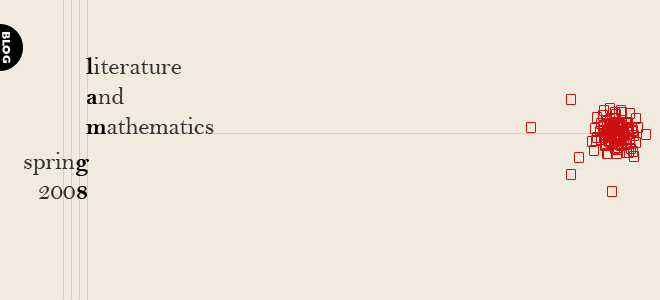I really know nothing about operas, except that they include men and women of exemplary talent singing, often in a language I cannot understand, or at least in a pitch I cannot understand. But the concept of an opera must be critical to an understanding of VAS, because after all, it is called An Opera in Flatland. It’s been a while since I read Flatland, but its subtitle is along the same lines: A Romance in Flatland. Therefore I deduce that the romantic aspects of the novel are of some importance, although the relationship between Square and Circle comes across as strained and monotonous throughout VAS. Even during the Opera, the ending crescendo of the novel, encompassing the themes and images of the book and Square’s flittering psyche, Circle is described as bored and unmoved. Maybe Square’s ultimate decision to go through with the procedure makes this a romance, an ode to his devotion in light of his conflict.
But my friend did tell me that Operas tend to be tragedies, (Shakespearean definition) often ending in suicides, but always include a theme of love. Perhaps a tragic aspect comes into the story with the burial of the antiquated culture of the past (Mother’s time), or the loss of Square’s ‘old body’. I would be inclined to believe that the romance between Circle and Square is real if shadowed by unresolved tension, but still there is a part of me that sees the title, and its suggestion of romance a bit ironic.
Wednesday, March 5, 2008
Operatic Romance
Posted by
Alyssa
at
9:20 PM
![]()
![]()
Subscribe to:
Post Comments (Atom)

2 comments:
Your friend is right! Operas are usually tradgic. It's interesting that Vas has such an ambiguous ending overall (or at least I think it's ambiguous) knowing this about operas.
I think the tragedy could might have something to do with Square actually going through with the procedure. It's a genetic suicide of sorts if you want to think of it that way.
Post a Comment